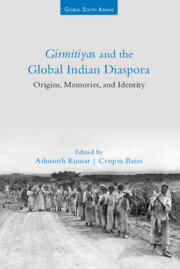10 - Rooting History: Indian Indenture in South Africa and The Sultan of Many Journeys
Published online by Cambridge University Press: 20 April 2024
Summary
The death of Hajee M. L. Sultan removes from the Indian scene one of its most colourful personalities. His story is in the best American tradition of the poor American boy ‘who made good’. Farm hand, waiter, farmer, porter, small businessman, big businessman, he passed through all the phases of poverty and wealth, at one time losing all he had in a tobacco business, at another time risking more than he had in a commercial venture. Written up, the story would appeal to thousands as on a par with stories of the merchant princes of the Western world; rich in interest and a spur to everyone.… The story is touched too with the same human magnanimity that has brought a final lustre to the great names of the capitalist world.… Who knows but that in time to come another small boy provided with the advantages existing only as a result of Hajee M. L. Sultan's beneficence will not rise from poverty to wealth; and what is more important, from ignorance to knowledge; and become in the field of political leadership or literature or science or industry a great statesman leading the whole Indian community to new levels of attainment. For who can tell where the influence [of] a benefaction begins or of magnanimity ends. There is something more. A curious inspiration invests the memory of such a man as the late Hajee M. L. Sultan. It is the inspiration to emulate his example of munificence.
—The Graphic, 19 September 1953The contribution of the Indian indentured of South Africa to the colonial economy was massive. Despite undertaking back-breaking work, from labouring on sugar plantations to building railways, most of the just over 150,000 migrants chose to stay in South Africa rather than return to India. Their impact was incredible, yet their histories were largely invisible in the public domain and continue to be marginalized. The promise of a memorial for the indentured made by the government in 2010, as Indians commemorated the 150th year of the arrival of the first indentured Indians in South Africa, failed to materialize even a decade later as the 160th anniversary was being marked. There is one indentured migrant, however, Sultan Pillai Kannu, whose name was emblazoned on a technical training college, and in postapartheid South Africa, a street bears his name.
- Type
- Chapter
- Information
- Girmitiyas and the Global Indian DiasporaOrigins, Memories, and Identity, pp. 225 - 253Publisher: Cambridge University PressPrint publication year: 2024
- 1
- Cited by

